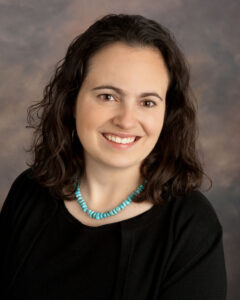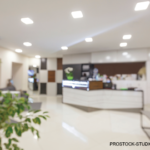 Sarah Cassell, MD, of Eugene Rheumatology, Oregon, knew fairly early on in her career that private practice offered the benefits and work-life balance she wanted to achieve. Her father, Sidney Cassell, MD, is also a rheumatologist, and she has been exposed to rheumatology for most of her life. Here, Dr. Cassell talks with The Rheumatologist (TR) about how she made the decision to stick with private practice and reap its rewards.
Sarah Cassell, MD, of Eugene Rheumatology, Oregon, knew fairly early on in her career that private practice offered the benefits and work-life balance she wanted to achieve. Her father, Sidney Cassell, MD, is also a rheumatologist, and she has been exposed to rheumatology for most of her life. Here, Dr. Cassell talks with The Rheumatologist (TR) about how she made the decision to stick with private practice and reap its rewards.
TR: Could you tell us a little about your background and how you got started in private practice?
Dr. Cassell: My father is a rheumatologist. I’ve always loved science and getting to know and work with people. As a kid, of course I didn’t understand what rheumatology was, but I’ve been exposed to it a long time.
TR: Did you always have a goal of aiming for private practice?
Dr. Cassell: For me, it was a really tough decision. I enjoyed academics and teaching and all the intellectual questions. In the end, I knew I wanted a family, and I loved patient care. It felt like the work-life balance was right for me in private practice. I found [that] things I loved in academics could be had in community/private practice as well.
It turns out that community physicians are always teaching. I’ve loved having [advanced practice providers] who are bright and looking to learn. You are always teaching colleagues, staff and patients. There are research opportunities. In the past, our office participated in research studies. Community physicians care for very complex patients. We cared for one of the first patients with VEXAS [vacuoles, E1 enzyme, X-linked, autoinflammatory, somatic syndrome], collaborating with the National Institutes of Health and colleagues [in other specialties]. In our office, we [see] patients with almost every rheumatic disease.
TR: How many employees are at your practice?
Dr. Cassell: Right now, we have two rheumatologists and a wonderful physician assistant. We are currently looking for another rheumatologist or [advanced practice provider] to join us.

Dr. Cassell
We also have a great office manager and front office billing team. We have two lab techs and a phlebotomist, as well as medical assistants and one X-ray technician.
TR: What are some of the benefits of private practice?
Dr. Cassell: Again, I think there are a number of things. Private practice is for people who want to spend their careers taking care of people. We teach every day: staff, patients, colleagues. You get challenging patients and research opportunities. There’s a lot more control of your day-to-day life and who you work with. You work with people that you choose. I have an excellent staff, and they are a joy to work with—you spend a lot of your time with your work family.
Once you’re established, you have a lot more control in a lot of ways. You control your schedule for your patients’ needs and for your life. If I need more time, for [example], for a child’s basketball game or a particular vacation, within reason, I have more flexibility to make those things in my life work.
TR: What are some challenges with private practice?
Dr. Cassell: I have to say that one of the biggest challenges has been finding and recruiting good rheumatologists and [advanced practice providers] who really want to come to the community. People [may] not know that community practitioners have a lot to offer and have satisfying, productive, financially secure careers.
A big piece of that is education and getting the word out to fellows and other academicians. There could be programs that the ACR puts together with talks on what the options are in community rheumatology, such as in a solo practice, single specialty [and] multispecialty clinics.
I recently joined the new Community Practice Council through the ACR, and we’re trying to get the word out to fellows and other providers who might not know [about private practice]. As I’ve gotten to know colleagues on the council, I see how many people are passionate about this. I’m excited and optimistic.
TR: What do you do to help balance out your work and life?
Dr. Cassell: I’m lucky that I live in the Pacific Northwest. I take advantage of what’s here and love to hike, ski, boat, fly-fish and get to the coast for day trips. I spend a lot of time with my family. The University of Oregon is here. The university adds a lot to the community, and we love being in a college sports town. I love to read, and there’s a wonderful performing arts center here. We spend a lot of time being active.
Vanessa Caceres is a medical writer in Bradenton, Fla.


